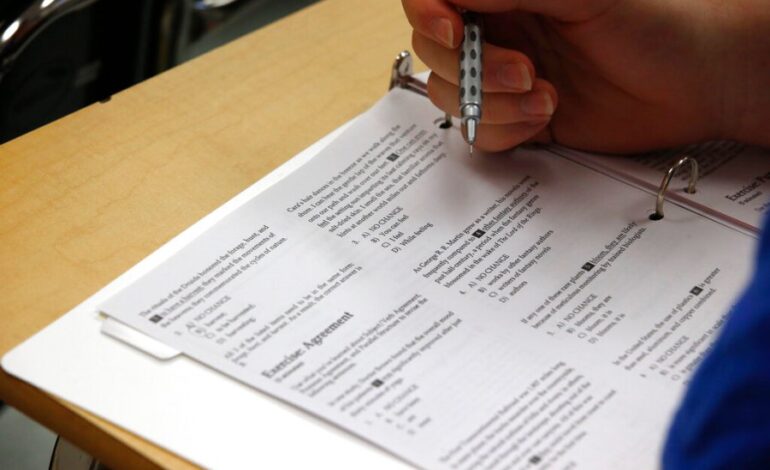Trump Mandates Transparency in College Admissions via Testing

President Donald Trump has signed a memorandum that mandates increased transparency in higher education admissions. This directive emphasizes the reinstatement of standardized testing requirements, positioning merit as the primary factor in college admissions processes. The move aims to address concerns about fairness and equality in educational opportunities across the United States.
The memorandum, signed on January 5, 2024, directs the U.S. Department of Education to develop policies that ensure standardized tests are a central component of admissions criteria. Proponents argue that such measures enable a more objective evaluation of applicants, thereby fostering a meritocratic system. The move has sparked significant debate regarding its implications for diversity and inclusion within educational institutions.
Background and Context
Standardized testing has long been a contentious issue in the educational landscape. Critics assert that reliance on tests can disadvantage students from varied backgrounds, while supporters maintain that these assessments provide a level playing field. Trump’s memorandum reflects a broader push towards transparency in admissions, with the administration advocating for policies that prioritize academic achievement over socio-economic factors.
This initiative comes as many universities have moved towards more holistic admissions processes, which consider a range of factors beyond test scores, including personal essays and extracurricular activities. The memorandum seeks to reverse this trend, focusing instead on quantifiable metrics such as standardized test scores, thereby aiming to ensure that admissions processes are less influenced by factors like race or economic background.
Reactions and Implications
Responses to the memorandum have been mixed. Supporters, including some educators and policymakers, argue that reinstating standardized tests will help to identify and reward high-achieving students from all backgrounds. They contend that this approach will diminish biases that may arise from subjective evaluations in the admissions process.
Conversely, opponents warn that an over-reliance on standardized testing could lead to a decline in diversity within higher education. Critics highlight that standardized tests often do not fully capture a student’s potential or capabilities, particularly for those who may not have access to comprehensive test preparation resources.
The impact of this policy change could be significant. With standardized testing likely to play a more central role in admissions, universities may need to adapt their evaluation criteria accordingly. This could lead to shifts in applicant demographics and alter the landscape of higher education in the United States.
In summary, President Trump’s memorandum marks a pivotal moment in the ongoing debate surrounding college admissions. By reinstating standardized testing as a key criterion, the administration aims to promote merit-based evaluations, while also facing scrutiny over potential implications for diversity and equity in education. As discussions continue, the future of college admissions in America remains uncertain.






